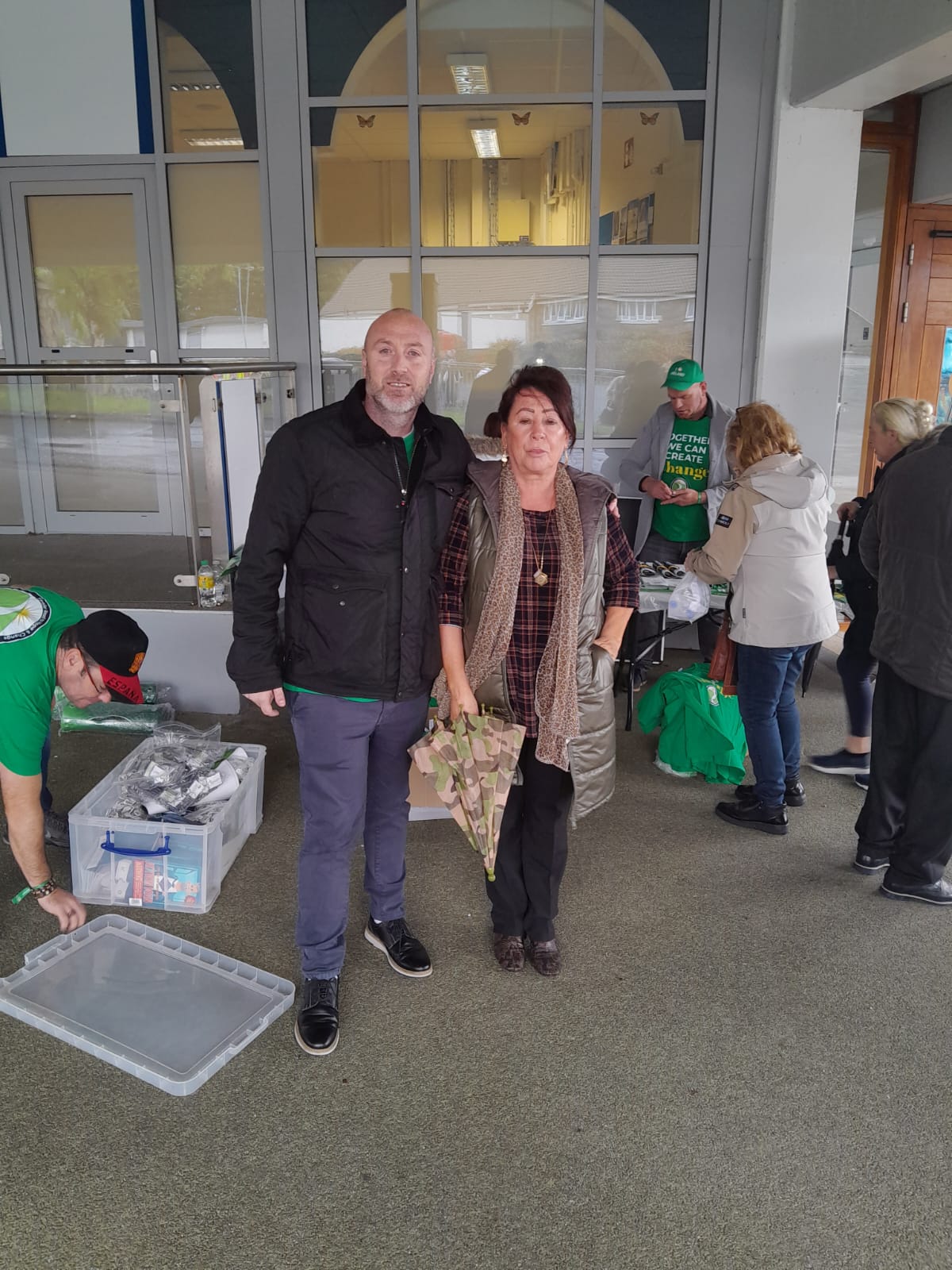On Tuesday, 8th October, Pavee Point Traveller and Roma Centre, along with hundreds of Travellers and Traveller organisations, attended a pilgrimage to Knock to remember Traveller women, men and children who have died by suicide. This pilgrimage formed part of the ‘Traveller Road to Hope and Change’ (Pavees Tomar Tobar a Nuck) campaign, organised by Exchange House, Pavee Point Traveller and Roma Centre and the Traveller Counselling Service.

The campaign aimed to offer hope and support for Travellers impacted by suicide, encourage local Traveller organisations across Ireland to hold their own awareness raising event, and to highlight the need to address Traveller mental health inequalities through policy and service provision.
“More importantly, the campaign is a wake up call to the State to take action before more of our people take their lives. The government has committed to tackling this urgent issue through the development of a Traveller and Roma Mental Health Action Plan in 2020. Traveller families and Traveller organisations are still waiting.” said Geraldine McDonnell, Pavee Point.
By showcasing initiatives and the work on the ground that Traveller organisations and Primary Health Care Projects are doing, the aim was to shine a light on Traveller mental health and suicide, which is well beyond crisis point. The campaign was captured by two Traveller filmmakers, Joshua and Ethan O’Donoghue, who are working on a documentary which will be premiered later this year.

‘Traveller Road to Hope and Change’ was launched in Carlow on World Suicide Prevention Day, 10th September, and ran until 8th October, National Traveller Mental Health Awareness Day. Campaign events included coffee mornings, information sessions, masses, the launch of signposting materials, community walks and tree planting, with an estimated 800 plus people taking part across the country.
Pavee Point held a Suicide Prevention walk ‘Misli to Howth Head’ as part of the campaign on 8th September. Over 50 Traveller men walked Howth Head to remember loved ones lost to suicide.

“As men, sometimes we don’t like to talk about mental health and suicide ,” said Michael Collins, Men’s Development Worker, Pavee Point. “Misli to Howth Head allowed us to create the conditions in which Traveller men could discuss mental health, addiction and suicide and all of the other issues that are impacting on us on a daily basis. It also provided the space to raise awareness of services and create those links that are vitally needed in the community.”

‘Traveller Road to Hope and Change’ (Pavees Tomar Tobar a Nuck) is supported by HSE Mental Health Operations and run in association with the Traveller Counselling Service and Exchange House.
The All Ireland Traveller Health Study 2010 reported that the Traveller suicide rate is 6 times higher among than non-Travellers, and subsequent research shows this is still the case. Suicide accounts for one in 10 Traveller deaths. The government has recognised the Traveller mental health crisis and must also ensure that the National Traveller Health Action plan is properly resourced, and that a Traveller and Roma Mental Health Action Plan is developed hastily.
Mental health is a multifaceted issue requiring support and improvements across a range of areas; education, employment, accommodation, to name a few, to improve outcomes. It is therefore crucial that the second National Traveller and Roma Inclusion Strategy and the Traveller and Roma Education Strategy (TRES) both published this year, are resourced and implemented to improve outcomes across a range of areas.

